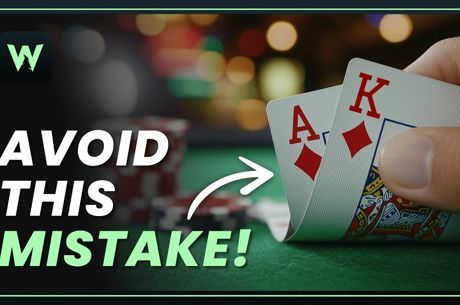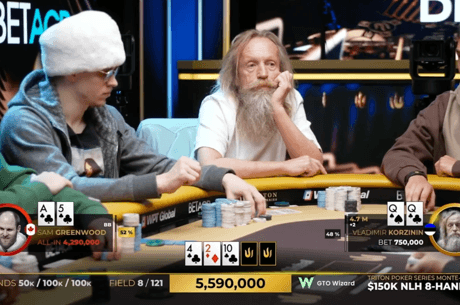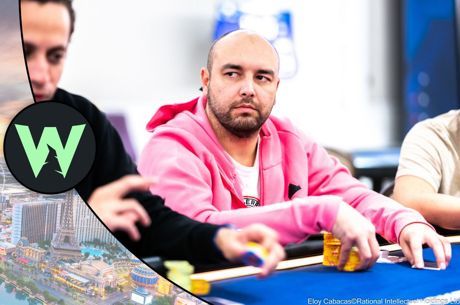Ignoring the Alarm: A Lesson to Listen When Warning Bells Ring

At the UKIPT Dublin last month, on the second day of a long festival, an alarm went off in the cash game and satellite room. How many poker players do you think even for a moment shifted in their chairs?
You already know — not a soul.
The next night I was playing a €330 freezeout event and an alarm went off again — but this time it was in my head. It was in the middle of a hand. And I only half-listened. The result was a disaster.
It all started when I was dealt A♣K♠ in the cutoff seat, one off the button. It was the 200/400/50 level and after it folded around I raised to 800. My opponent on the button, a nice guy, mulled over his decision. It looked like he wanted to three-bet. It looked like he was going to three-bet. But then he didn’t. He just called.
The small blind instantly folded and the big blind looked down, frowned at some positively ugly cards, and threw them into the muck.
A little ringing. Something was already up. The flop came down A♦K♣10♥.
Hi, good morning… it’s the poker gods…
It was at this point I made the first and probably the only good decision in this hand — I checked. My opponent instantly checked back.
The turn was the 9♦, adding a diamond flush draw. I decided it was perfectly reasonable to value bet twice. So I started with a bet of 1,250, about half the pot. This was a mistake. Do you see why?
Making a plan to value bet twice was not a mistake. If my opponent called my turn bet I would be well positioned to make another value bet on nearly all rivers. And my bet size, I think, falls into a range of reasonable bet sizes. So where was the mistake?
I didn’t plan for a raise. And sure enough, the ringing in my ears resumed — my opponent raised to 3,000. What in the world was going on?
Would he play this way with a worse two-pair hand than my aces and kings? 10x9x? Kx9x? Ax9x? Would he check the flop with QxJx? Would he flat-call with QxJx if it weren’t suited?
But wait, before the flop would he think of three-betting QxJx-offsuit and then decide on flat-calling?
Now here after he raised I made another, crucial mistake. I called without a plan. I called to see what was up on the river and to decide then.
Calling without a plan, even a bad plan, is a big mistake. Especially when the alarm bells are ringing.
…you don’t have the best hand
The river was the 3♦, completing the backdoor flush draw. I checked and my opponent bet 2,600. I thought, “ugh, I don’t think I can fold against that size — it’s so small.”
Notice how my internal monologue is already biasing me towards calling?
My price was good, 2,600 to win around 11,000. Better than 4-to-1. I only have to have the best hand a little under 20% of the time to break even. The river bet was smaller than his turn raise, technically. But I only had to call 1,750 to continue against that.
How much more do you need to know?
And now, on the river, I had more information at hand, namely that my opponent was willing to follow up his turn aggression with a river bet. My turn bet-call looks like a solid holding. It looks like I have a hand like Ax9x or 10x9x myself, a hand that checked the flop, but then improved on the turn.
If he wanted to bluff out those hands, he would surely need to bet larger. We can exclude almost all bluffs now. Was our opponent bluffing with something like 6♦5♦ on the turn, and now he has a flush?
The truth is our price isn’t that good relative to our situation.
Confusion took hold of me and I made the call. Quite an embarrassing thought process — kind of like someone who can’t find the well-lit exit sign when the fire alarm is ringing.
My opponent had an unlikely hand to be sure, but all the evidence was there — he tabled AxAx.
Next time you’re sitting comfortably and an alarm goes off, take note. You might not even know why the alarm is sounding, but that doesn’t mean you shouldn’t listen!
Want to stay atop all the latest in the poker world? If so, make sure to get PokerNews updates on your social media outlets. on Twitter and find us on both and !









